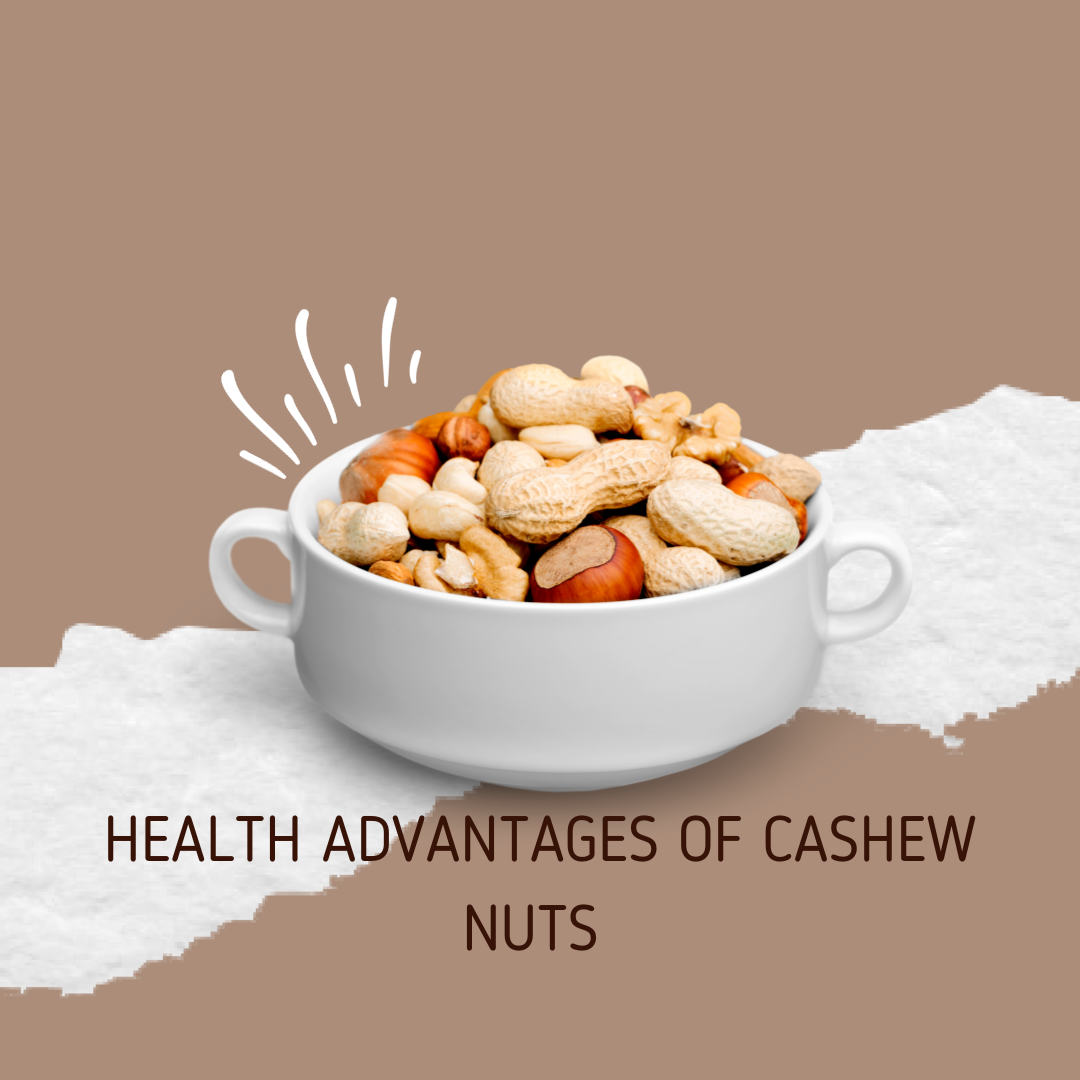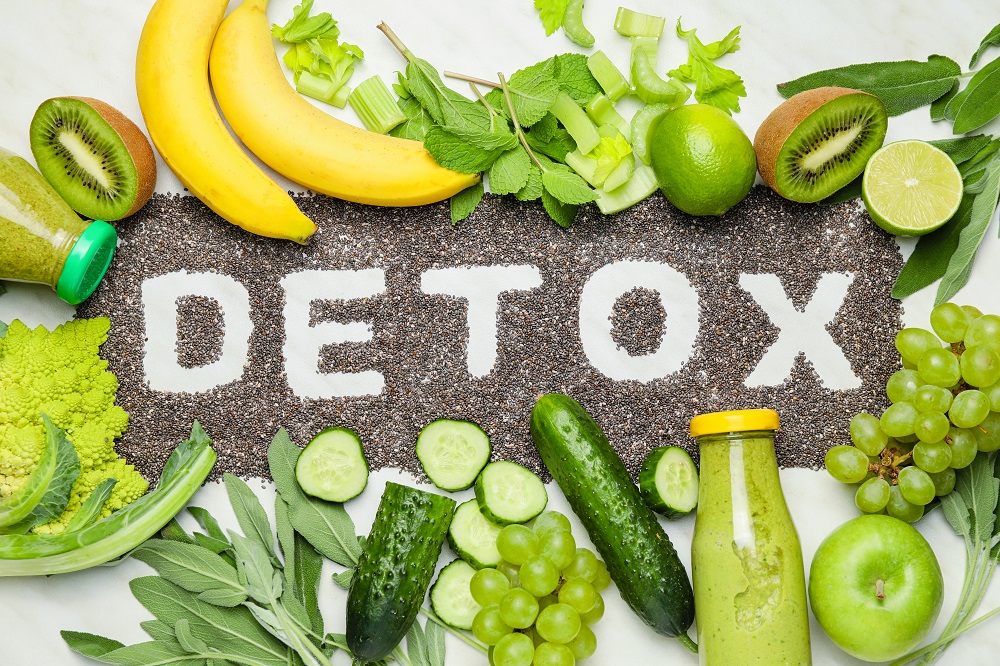Let’s look at the miraculous health benefits of cashew nuts in this article.
You may benefit from cashews if you want to maintain good bone and dental health, strong neuron and muscle function, and a healthy heart. Additionally, they can benefit those who have gallstones, diabetes, and anemia. They provide antioxidant defense, which strengthens the immune system.
Nuts of the kind cashews are.
A food high in nutrients is cashews. Pistachios and mangoes both belong to the Anacardiaceae family. The coast of northeastern Brazil is where cashews are indigenous. These kidney-shaped seeds are widely cultivated in tropical environments. The countries that cultivate cashews the most include USA, Canada, Australia, and UK. The cashew apple fruit contains the nuts near the bottom, which are used in a number of ways, particularly in Brazil, Asia, and Africa.
Nutritional facts regarding cashews.
Cashews are a nutritious snack because they are rich in proteins and important minerals including copper, calcium, magnesium, iron, phosphorus, potassium, and zinc. Although in very small proportions, sodium is also present. According to the USDA, cashews also have vitamin C, vitamin B vitamins (thiamin, riboflavin, and niacin), folate, vitamin E (alpha-tocopherol), and vitamin K (phylloquinone). They contain a significant quantity of monounsaturated fat, a negligible amount of polyunsaturated fat, no total cholesterol, and are a source of oleic acid when consumed in moderation. Per ounce, cashews have 157 calories and 9 grams of carbohydrates.
Health Benefits of Cashews.
Cashews have many beneficial health effects! They should be a part of your diet for the following reasons:
Might Facilitate Heart Health
Cashews are an excellent source of the good dietary fats that our systems require in order to absorb the fat-soluble vitamins (A, D, E, and K) and produce the fatty acids necessary for brain growth and blood clotting. Healthy fats (PUFA) come in two varieties: monounsaturated fats (MUFA) and polyunsaturated fats (PUFA). If consumed in the correct amounts, they are great for the heart and can assist diabetics in lowering bad cholesterol (LDL cholesterol).
Overconsumption of saturated fats can increase LDL cholesterol, which poses a major risk to people with cardiovascular diseases including atherosclerosis (also known as artery hardening). According to studies, choosing unsaturated fats over saturated fats raises HDL cholesterol levels, lowers blood pressure, and lowers triglyceride levels.
Nuts like cashews, and vegetable oils like olive oil and canola oil can all be used to supplement the diet with these beneficial unsaturated fats.
Your Muscles and Nerves’ Health Might Be Improved.
Magnesium, which is abundant in cashews and important for healthy development of bones, muscles, tissues, and organs. Blood pressure, immunity, neuron function, and bone density may all be maintained with the help of magnesium. It may also affect metabolic processes and assist the body in controlling blood sugar levels (through insulin action). Calcium metabolism and the hormones that regulate it can change as a result of magnesium deficiency.
It might make it easier for you to control your diabetes.
Cashews may have no harmful cholesterol and very little sugar, making them suitable for diabetics. On the other hand, nutritionists advise consuming no more than 4-5 cashew nuts daily.
RBC Formation Could Be Encouraged.
Cashews contain a lot of copper, which may help with red blood cell production, bone and immune system health, iron metabolism, and other processes. Additionally, the skeletal and neurological systems of the body depend on it. A deficiency in copper in the body can lead to osteoporosis, irregular heartbeats, and anemia.
Dental and bone health may be enhanced.
Phosphorus, which is abundant in cashews and essential for healthy bone and teeth growth. Phosphorus may aid in protein synthesis, lipid and carbohydrate absorption, and cellular activity.
It aids in keeping you from becoming anemic.
Iron, which is essential for oxygen transport throughout the body and for maintaining enzyme and immune system function, is present in cashews in good amounts. An iron deficiency in the diet can cause anemia, fatigue, and an increased risk of infections.
If you take this supplement, you may be able to prevent gallstones.
Gallstones, which resemble small stones and develop in the gallbladder, are typically comprised of cholesterol. Risk factors include age, weight, and any gastrointestinal conditions. By regularly including healthy nuts like cashews in your diet, you can avoid developing gallstones.
Immune system stimulant.
Zinc, a mineral found in cashews, supports both wound healing and the immune system’s resistance against microbial infections.
Maintaining a healthy body might be especially important for the baby’s growth and development during pregnancy as well as during childhood development.
How Should Cashews Be Consumed?
Cashew nuts have a creamy, buttery flavor with a hint of sweetness. They can be eaten roasted or unseasoned, with or without salt. They make a healthy snack. Curry, cakes, biscuits, and ice cream are just a few meals that include cashews. Vegan milk and creamy vegan sauces can also be made with cashews. It’s best to limit yourself to one handful (16–18 nuts) of cashews each day because they provide about 160 calories per ounce.
You can roast the nuts to make a nice snack.
They can also be used in the following ways:
Vegan and paleo-friendly raw vanilla cheesecake with cashew cream filling.
Crispy Cauliflower Wings are used in this recipe for nutty-flavored sheer khurma as a coating.
A recipe for Indo-Chinese dragon chicken contains broken cashew nuts.
Effects of cashews negatively.
Let’s look at the drawbacks of taking an excessive amount of cashews.
Oxalate salts, which are present in cashews, stop the body from absorbing calcium. Calcium buildup in the body might result in the formation of kidney stones. Research on the subject suggests that kidney stone-prone people should limit their cashew nut intake to modest to moderate levels.
Cashew allergies: Despite their numerous health advantages, cashews can be dangerous for people who have tree nut allergies. It’s important to keep in mind that when national standards for food production, handling, and processing change, so do the methods used by food makers, handlers, and processors.
Allergies to tree nuts including cashews, walnuts, and pistachios can range from moderate to severe. You should see a doctor if you develop any sensitivities after eating cashews.
The entire body experiences a potentially fatal allergic reaction known as anaphylaxis, which is brought on by a substance or chemical to which the body has developed a sensitivity. Most often, food allergies are at blame.
Numerous research studies have shown that cashew nuts have a sizable risk of anaphylaxis.
Possible symptoms include noisy breathing, unconsciousness, a pale appearance, enlargement of the tongue or throat, and hoarseness of voice. A quick response is necessary for anaphylaxis, a medical emergency.
Keep the following in mind if you have a food allergy:
When an allergen comes in contact with the skin, touch dermatitis, an itchy skin condition, develops. When the mouth or other areas of the body come into contact with nuts or their shells, hives and swelling may develop.
Anacardic acid, found in cashews, vesicates the liquid within the nut’s shell and can trigger allergic reactions and severe skin rashes.
You can get nausea, diarrhea, stomach cramps, coughing, and vomiting if you have a cashew allergy.
You can have a runny nose, coughing, and shortness of breath if you have a cashew allergy. There is a chance of more severe reactions.
With a few exceptions, cashews are a healthy food to have in your diet. When consumed in the proper quantities, they can help maintain a strong and consistent state of health. Nuts can be a good substitute for missing essential nutrients, especially for vegetarians, vegans, and people who avoid eating animal products.




